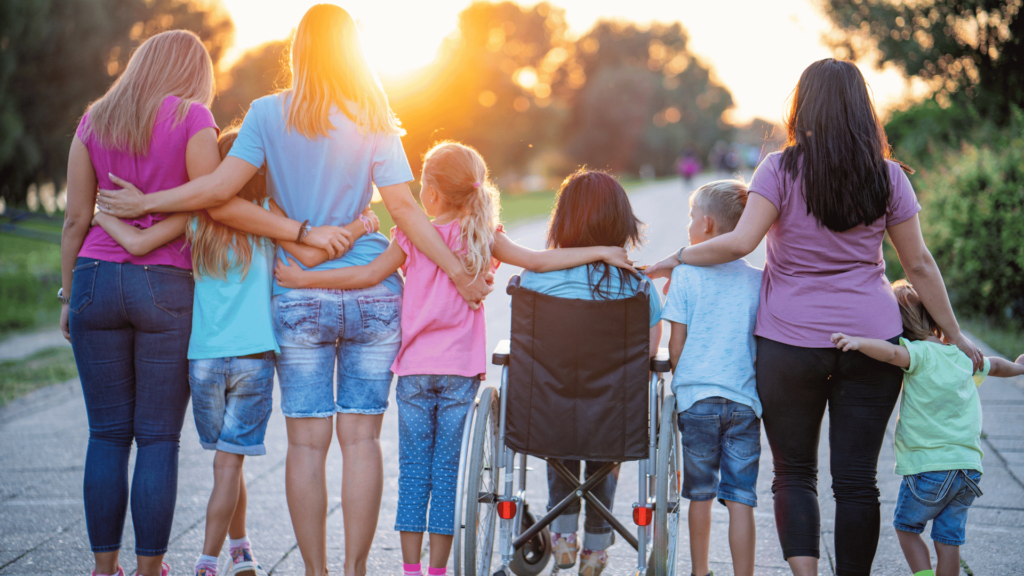Family caregivers are one of the most loving yet demanding roles one can undertake. It’s a path filled with rewards and challenges, joys and sorrows. Amidst the daily tasks and responsibilities, caregivers often find themselves grappling with deep-seated emotions of guilt and grief. Although common, these feelings can significantly impact a caregiver’s well-being if not appropriately addressed.
Understanding Caregiver Guilt
Caregiver guilt is a multifaceted emotion that arises when individuals feel they’re not doing enough for their loved ones or when the demands of caregiving clash with personal life obligations. This guilt can stem from various scenarios, such as feeling inadequate in providing care or experiencing frustration over the lack of time for oneself.
Scenarios That Trigger Guilt Among Caregivers:
- Feeling like you should have spotted signs of illness earlier.
- Balancing work and caregiving duties leads to a sense of neglect in either area.
- Wanting to take a break or feeling resentment toward the caregiving role.
Strategies to Manage Caregiver Guilt
Caregivers must reframe guilt-inducing thoughts by recognizing the value of their effort and accepting the limitations inherent in caregiving. Setting realistic goals and expectations for oneself can significantly alleviate feelings of guilt.
Tips for Alleviating Caregiver Guilt:
- Acknowledge your feelings without judgment.
- Communicate openly with family members and the person you’re caring for about your capabilities and limitations.
- Celebrate small victories and recognize the impact of your caregiving.
Recognizing the Signs of Grief
Grief in caregiving often manifests as anticipatory grief—a mourning of the impending loss and the changes in the relationship with the loved one being cared for. Identifying grief can be challenging, as it intertwines with daily caregiving duties and responsibilities.
Common Signs of Grief in Caregivers:
- A sorrow for the life and experiences lost or altered by illness.
- Feelings of loneliness or isolation, even when surrounded by others.
- A general feeling of numbness or withdrawal from activities once enjoyed.
Coping Mechanisms for Grief
Dealing with grief requires caregivers to engage in self-reflection and adopt coping strategies that allow for emotional expression. Seeking support from others who understand, engaging in meaningful rituals, and allowing oneself to mourn are vital steps in navigating grief.
Strategies for Managing Grief:
- Find a support group specifically for caregivers where experiences and emotions can be shared freely.
- Establish a personal ritual to honor and remember the essence of the loved one being cared for.
- Permit yourself to experience a range of emotions without guilt or self-repression.
Seeking Professional Help
When feelings of caregiver guilt and grief become overwhelming, seeking professional psychological support is a critical step. Professionals can offer coping strategies tailored to the individual’s circumstances, helping caregivers manage their emotional health more effectively.
Finding Support:
- Look for therapists or counselors specializing in caregiver support or grief counseling.
- Utilize online resources and platforms to connect with professionals offering virtual consultations.
Self-Care and Emotional Health
Self-care is not selfish—it’s essential for maintaining one’s health and ensuring the capacity to care for others.
Self-Care Practices Include:
- Regular physical activity to boost mood and energy levels.
- Healthy eating habits to sustain physical strength.
- Engaging in activities that bring joy and relaxation outside of caregiving duties.
Building a Support Network
Having a robust support network can significantly ease the burdens of caregiving. This network can include family, friends, fellow caregivers, and professional support services, providing emotional and practical assistance.
Enhancing Your Support Network:
- Reach out to community services and organizations dedicated to caregiver support.
- Maintain open lines of communication with family and friends, sharing your needs and experiences candidly.
Key Takeaways
- Acknowledging Your Feelings is the First Step to Healing: Caregivers must recognize and accept their feelings of guilt and grief. Understanding that these emotions are a natural response to their situation can provide relief and the first step towards managing them effectively.
- Self-Care is Not Selfish: Caregivers often put their own needs last, but prioritizing self-care is essential for maintaining physical, emotional, and mental health. A self-care routine can help caregivers replenish their energy and sustain the resilience to provide ongoing support.
- Seeking Support is a Sign of Strength: No one should shoulder the burden of caregiving alone. Reaching out for support through friends, family, support groups, or professional counseling can provide crucial emotional relief and practical advice.
Caregiving is an emotional rollercoaster—intensely rewarding yet profoundly challenging. Understanding and coping with the feelings of caregiver guilt and grief that accompany this role is crucial for the caregiver’s emotional health. Caregivers can navigate these complex feelings more effectively by employing the strategies discussed and actively seeking support.
Your role as a caregiver is invaluable, and it’s okay to seek help along this journey. Allow yourself to feel, to grieve, and to accept support from others. Remember, caring for yourself is as important as caring for your loved one.
For more resources and support, please check out these related articles:
- 10 Tips for Balancing Work and Family Caregiving Responsibilities
- Nutrition for the Caregiver: Maintaining Your Health While Caring for Others
- The Essential Guide to Family Caregiving
- Empowering Family Caregivers: Exploring the Latest in Family Caregiving Technology
- Understanding the Legalities: A Family Caregiver’s Guide to Medical and Financial Decisions
- Creating a Sustainable Caregiving Plan: A Checklist for Family Caregivers
- Navigating Long-Distance Caregiving: Strategies for Managing Care from Afar






